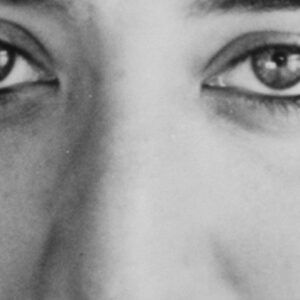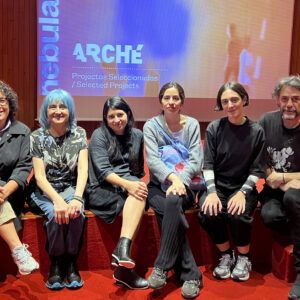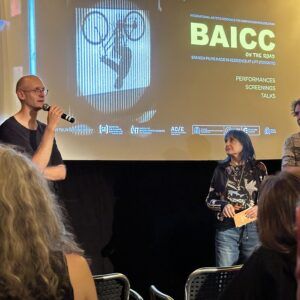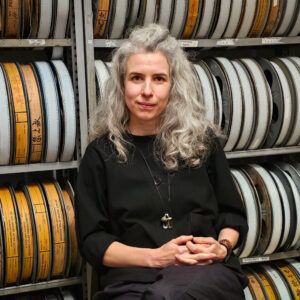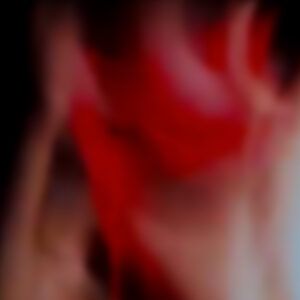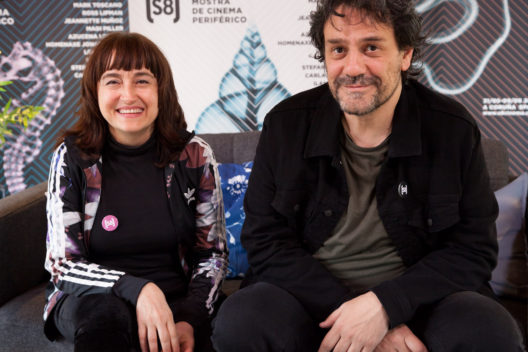
When, how, and why did you come up with the idea of creating a festival?
Ana Domínguez: We were tired of working according to commercial models of cinema and television. We’d been there for a while, I was part of the art department (set, atrezzo). It’s a job that one takes as something creative (we both come from the art world), but one day you realise that this vortex that is the audiovisual industry does not welcome creativity –it’s all about producing and producing fast, and creation is given but a tiny role. After a while, you get tired of this, especially if you are a creative person: you need to do things that make you feel fulfilled. So I decided that I wanted to quit that job, and we were lucky to meet when we were both in that moment of our careers. I started collaborating with Ángel when he was at Lili Films, we started professionalizing what he had started there. And we realised that all the festivals that existed back them were just repeating a pattern. So we thought: “What kind of cinema do we want to see? What films and artists do we want to discover?” And we thought: “Well, if this is what we want, why not do it?” That’s how it all started.
Ángel Rueda: Yeah, it’s also a contextual thing. Like Ana said, we had a certain relationship with the traditional cinema industry: feature films, documentary films and movies for TV… most of them were interesting, educational, but our impulse for creation didn’t abandon us. Like Ana said, I had founded an art project called Lili Films, where you could already see the factors of what would later become the (S8), because it has a focus on real time cinema, in performance, in working with the materials, with analogue materials… You could even say that the event we organised for celebrating Lili Films’ 5th anniversary was a seed of the (S8): we organised a week of film shows and performances, that took place for five days in different spaces of the city. We would have a street pianist adding sound live to a film, a projection inside a sewing workshop… There was always, in this artistic impulse, the idea of cinema as an intervention outside the rules of the cinema industry. We had this frustrated artistic impulse, so we decided to take the plunge and create the festival we wanted. So that was the background. We designed a project, which was mainly based on our experience with Lili Films, and from there we’ve developed it with two main ideas: that the avant-garde is the protagonist, and analogue formats are the backbone.
Where does the name (S8) Mostra de Cinema Periférico – (S8) Showcase of Independent Cinema come from?
Ángel Rueda: It was a natural consequence. In our five-year Lili Films experience, we discovered that super 8 was a space for freedom: for amateurs, for families… because you can organise your own projections at home, on a blanket, and it’s always an immediate experience, open to improvisation –everything –and anything– can happen. That’s why we stuck to those initials S8, because we wanted a free festival. Because super 8 is for everyone –for recognized filmmakers and for emergent artists. It has been a fundamental tool for breaking the ice and falling in love with cinema. Periférico [independent, peripheral] because we wanted to go beyond the circle of conventional cinema, of cinema understood as a central actor that conditions everything, around which everything happens. We were more interested in the things that were around, that surrounded it. I personally feel that cinema is like a vampire that has sucked all the life from the arts that surrounded him: visual arts, theatre, music… We wanted to do something that deviated from the established centre.
The two first editions of (S8) took place in the Antigo Cárcere (Old Prison). Why did you choose this building to be your venue, and how did you experience that first edition?
Ana Domínguez: Actually, the name Mostra de Cinema Periférico has a lot to do with that: we wanted to take the festival to a special place, to the outskirts, to the periphery. We really wanted a place that was special, that had this aura to it –a building with a history.
Ángel Rueda: Cinema has this ability to transform, and it doesn’t only transform the watchers, but also the place that hosts it. We had this space in Coruña, the Old Prison, who had a history of repression, and we thought that cinema could contribute to change that history into one of inclusion. Also, that could help open this space to the city via a cultural event, what’s more: a cinematographic event open to freedom. I think that’s the main impulse for the project, a project that was very risky and that wanted to be radical… it was necessary that it had that extra of transformation in terms of the venue that would host it. And many circumstances led the Old Prison to be the first epicentre of the festival.
Ana Domínguez: The logistics were very complicated. It was not easy to get permission to use that space but we finally got it, even though it was for two years only. We were also very careful when handling the space’s memory. We wanted that history to be present. The first year we had an installation on the memory of the prison, and we edited a small book. It was really moving and emotional, because that year many people came who had actually been in prison there, or siblings of people who’d been there, and who wanted to visit the space again, now transformed in something playful, festive.
Ángel Rueda: I would say open, rather than playful. For them it was like completing a cycle, turning a page: reuniting with that space but from freedom, which was one of our goals when organising this festival.
Did you ever imagine that this event would make it to its 10th edition?
Ana Domínguez: You never think about what will happen tomorrow… You live in the present, fighting for each and every edition, to make it possible. You don’t think “I want to have five, ten editions”. But every year you have this wish to go on. And then one day you realise –not without surprise– that you’ve made it to the 10th edition. You don’t know how, but they’re already ten. Every year is a fight, you never know if you’re going to make it or not, but you don’t think about it. But yeah, we’d like to keep going!
Ángel Rueda: Mainly because we were occupying an empty space, we started from zero. There wasn’t a tradition of cultural events on cinema, on avant-garde cinema, in our country. So our work was a daily fight, it was about living in the present. We just think in terms of the next edition, and our only ambition is to continue growing, to continue learning with the festival. We don’t want to be popes, we just wish to open a space for knowledge, and a breeding ground for new things. It’s like slow cooking. We’ve always said that it was not a project in the sort or the long term: it was a project of the present.
What are the differences between the 1st and the 10th edition?
Ana Domínguez: I think that it has grown stronger, that with every new year we are more confident about what we do: in terms of the programming, and of what we want it to be. But also, every year is the same: everything needs to be fought for: will we have permission to do this, will be able to borrow that…? This hasn’t changed. Surprisingly, ten years after we still have to cope with this uncertainty. But we did consolidate a team, we’re increasingly aware of the tasks to be done, and our programs continue to evolve. We’ve been able to build a loyal audience, people who come from beyond Galicia, from Spain, from other countries… because they want to be here, to watch things that aren’t available almost anywhere else. We realise that we’ve managed to achieve that, even though at the beginning we just wanted to create something special, something different.
Ángel Rueda: From the very beginning we knew that the festival also had a didactic responsibility. We’ve managed to build an audience for this kind of cinema, which is very specific. Also, at the beginning it was very didactic, it was a tool for dissemination, and now it has become a tool for creation, and for supporting creators. I think there’s something we can be proud of: that some of the people who came here as spectators in the early years are now creators. We’ve been lucky to premiere works by young people who were inspired and encouraged by the cinema we show here, so they’ve decided to start experimenting, too. And that makes it worthwhile. That’s something you can only see with time, that you’ve somehow become an influence. Still a humble festival, it’s become an international reference point, a meeting point for people interested in experimental film, but also for supporting creators.
Besides directing this festival and being cultural activists, you’re also creators. What was the impact of the festival in your art?
Ana Domínguez: It’s enriching, because you get to spend time with the visiting artists. I always say I’d love to be a spectator at the (S8), but, of course, you never can. Meeting the artists is inspiring, is fulfilling. It’s hard to save time for creation because working for making this possible is a long process of several months, and also very uncertain, because we don’t have a solid support. We apply for grants and subsidies but you never know how it will turn out. And then, if you finally receive it, it’s months and months of paperwork… You don’t have much time for your own projects, but we manage to do something. Actually, we’ve been involved in a film, Os fillos da vide, that started with the festival, it’s been a work in progress for nine years. It’s about grape harvesting, and it’s a project I started, but we’ve been collaborating.
Ángel Rueda: That’s a very accurate term you used: cultural activists, because artists also have that drive. You’re protected when creating up in your tower, but there’s also a precariousness to cultural projects, and artists must engage in activating those spaces, too. We have welcomed this responsibility, and, as artists, we are involved in the design and development of a cultural project, of this kind of film festival. It’s not something that comes to your mind at the beginning, but as time passes you realise that you can’t be selfish when working in this. You need to be very generous, because you’re going to sacrifice your time in order to invest it in things you didn’t really know about, like management and financial issues…
Ana Domínguez: Definitely. I wouldn’t do those things if I weren’t involved in this project.
Ángel Rueda: It’s the generosity of giving your best and put your soul in it, in order to give a soul to something you believe in. I don’t think selfishness and cultural activism are compatible –you really need to engage in it. Of course, there’s a price to pay, too. This kind of work can be an obstacle to your own reflection and introspection, which are fundamental if you want to create something. Over the last years I’ve produced just a couple of my own pieces, very short, because working for the festival is also a creative endeavour, and most of my creativity goes into it. Ana has dedicated some time to her personal project, her first feature film, and it’s been crazy –marvellous, but crazy. It’s not easy, but it’s really worth it, and I think we’ve managed to stay creative. We’ve always kept this artistic perspective, and we’re involved in projects for the future.
Can you think of any particular moments that left a mark on you?
Ángel Rueda: Well, first of all, there’s something that hasn’t to do with art at all, which is the community that has been built around the festival. To me, that’s key. Also during these years, I’ve met a number of professionals that have decided to engage in the development of the project, people who put their talent in their being creative. This is a festival where creation plays a major role: we have to curate the contents, we have to design the programs. We’re very lucky to have found our twin souls, to have been able to build this family. We’ve broadened our circle of friends, and to me that’s very important. That’s what stays in my heart. When it comes to the art, what always stays with me, is the human side of the artists. I find that fascinating. My colleagues become my friends, and it’s the same with the artists. For example, today we’ve welcomed Naomi Uman in Coruña. She’d visited us back in 2012. Today, I hugged her… and it was like we’d seen each other only yesterday! We admire their work, but we also admire the person behind the art.
Ana Domínguez: It’s exactly as Ángel says. When I try to think about these ten years, all the editions mix up, all the emotions mix up. Everything adds up and turns into a parallel timeline. I think it’s very important to share it, and realise that we made the right choice. We have a team with us who also belief in the project. We’re not the only people who are exited and moved. And that makes me think that even though this is hard, challenging, and demanding, we’re making the right choice, because we’re not alone. There are a lot of people in there with you. And the artists, too…
Ángel Rueda: I came to the conclusion that fighting for utopias is worthwhile. Because that’s what it is: a utopia.

